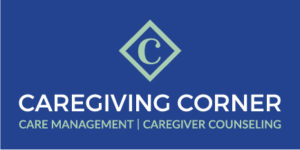Aging Well Charlotte
Helpful tips for family caregivers
February/March 2024
Are you the one on call when your relatives’ devices don’t behave as expected? You want to help, but maybe it’s something you can outsource. In our middle article we talk about conditions that present with symptoms of dementia but are not Alzheimer’s or any of the other uncurable causes. If worry about Alzheimer’s is distressing you or your loved one, getting tested may reveal that the cause is something that can be resolved. Last, we talk about the universal but socially delicate reaction of disgust. It does come up during family caregiving. We’re jumping in to help you tackle this difficult yet very natural response.
Tech support for your relative(s)
Technology has done wonders to help us stay connected with family members. But beginning users have to learn new terms and skills. In-person classes are often available through senior centers or the library. And AARP’s AgeTech Collaborative offers online video tutorials and classes through SeniorPlanet.org.
Even if you seek to provide less complicated devices, it’s still likely your loved one will need tech support, most commonly for
- updating a system or app
- converting an older program to a subscription-only service
- installing and starting a basic app such as Zoom
- “it stopped working” (rebooting the Wi-Fi if it’s down, or charging the device)
Handling these tasks can be inconvenient and time consuming for you. You might try a monitor-sharing program such as Zoom or SplashTop. In this case, you take virtual control of your relative’s computer to help them from wherever you are. Other options include
- in-person appointments. Many senior centers and libraries offer one-on-one tech support or group classes from knowledgeable volunteers. They are often free or low cost. Some retailers offer in-store services for their products.
- Home visits. Again, some retailers will allow you to purchase in-home tech support for a new device. Your family member receives help at home from a tech-smart individual. Be sure the service provider does background checks on staff. You might even consider purchasing a “whole home” plan from retailers or a local IT company. It would cover all your relative’s devices: Wi-Fi, phone, tablet, computer, television, etc.
- Virtual or remote support. CyberSeniors.org offers free online tech support “office hours.” Also, scheduled one-on-one training appointments. This service is specifically geared for older adults. It pairs them with senior-friendly high school or college mentors. Call 1-844-217-3057, toll-free.
Does your loved one lack a device set up for video visits? Consider ordering a phone or tablet online from a private company such as CanDooTech.com. (It’s a member of AARP’s AgeTech Collaborative.) CanDoo preconfigures the new device and mails it to your relative. Then their team of senior-friendly “tech concierges” can be hired one hour at a time. Or you can purchase a yearly rate for ongoing tech support and troubleshooting.
Return to topMaybe it's not Alzheimer's
“Dementia” is not a diagnosis in and of itself. It describes a collection of symptoms that involve memory and thinking that are enough to interfere with daily life. Alzheimer’s is the most common cause, but there are many other reasons a person might have dementia symptoms.
Most of the conditions that cause dementia cannot be cured. There are, however, some situations where the dementia symptoms are present but are reversible.
If you are worried about changes in a loved one’s memory, thinking, mood, or behavior, there may be a treatable cause. For instance:
- Drug reactions. Confused thinking may be a side effect of medication or a bad combination of drugs. Or mixing drugs with alcohol.
- Hearing loss. People with hearing loss often become withdrawn. They may seem forgetful or nonsensical when in fact they simply didn’t hear a conversation. Hearing aids can solve the problem.
- Other medical conditions. Diseases of the kidneys or liver can cause memory problems. As can head injuries. People with especially high or low thyroid levels can have dementia-cluster symptoms. As the medical conditions are treated and cured, the symptoms go away.
- Infection. A high fever can cause confusion. Cure the infection, and thinking returns to prior function.
- Nutritional deficiency or dehydration. Lack of B vitamins, particularly B12 and thiamin, can result in confused thinking. So can insufficient fluid intake.
- Emotional distress. Grief and bereavement following a loss can result in poor memory and confused thinking. So can the disruption of a move, say from home to a facility. Depression can affect thinking as well as mood. Fortunately, when the distress is treated—through counseling or medications—the confused and foggy thinking typically clears up.
It’s important to get tested. Before assuming it’s dementia, get your loved one a thorough medical workup. Testing could uncover a cause that is indeed reversible.
Return to topDealing with disgust
The emotion of disgust is a natural response. It evolved to protect us from potentially dangerous, scary, or infecting situations. But when it arises in the course of caring for a loved one—you involuntarily gag, for instance—it may cause you both distress.
Getting to the other side of the disgust response can lead to deep trust and appreciation between you and the person you care for. It may also be challenging and initially embarrassing.
As an example, it’s common to feel disgust about a loved one’s incontinence.
- Accept and allow your reaction. Pretending it’s not an issue doesn’t help. Nor does willing your response away. Instead, remind yourself it’s your body and brain trying to protect you.
- Objectively explore what concerns you. Like a scientist observing without judgment. What is the threat? Is it concern about infection? Worry you might throw up? How likely is this to occur? What if it did? What could you do then?
- Reassure yourself that you can cope. Studies have found that you can weaken your disgust response by thinking of it as momentary, something that passes. Also, reminding yourself that you can handle whatever happens (even if you’d rather not).
- Empathy for your relative. You may also feel anger toward your relative as the source of your disgust. But remember, they aren’t incontinent on purpose. They, too, may have feelings of self-disgust and embarrassment. Focusing on your caring for them can quell your reaction.
- You don’t have to do everything. Over time, your disgust is likely to diminish due to repeated exposure. But if the situation is too much, consider having another relative do this task. Or hire home help or consider a move to a care setting. Professionals have more experience handling disgust and have no personal involvement, which may be easier on your relative also.






